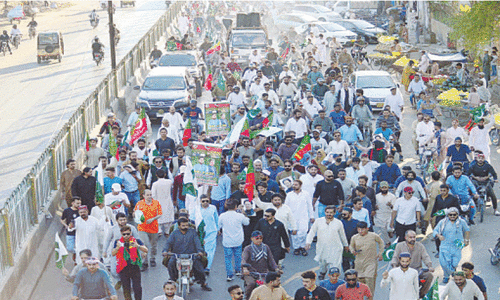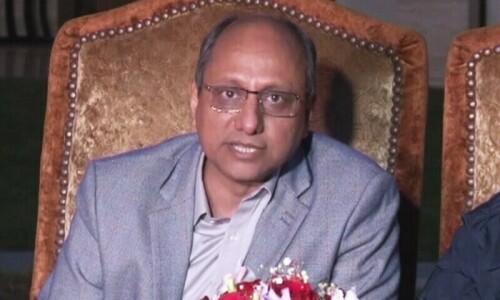
KARACHI: Jaun Elia is arguably the only Urdu poet of the 20th century whose popularity — both among the masses and the artist community — witnessed an exponential surge after his death on Nov 8, 2002. Yesterday was his 21st death anniversary. Despite acknowledging the poet’s worth and now global reach as a creative person, it was saddening to note that no cultural centre, institute or academy in Karachi — the city where he lived all his life after emigrating to Pakistan from Amroha, undivided India, where he was born on Dec 14, 1931 — held an event in his memory. Perhaps, they will organise programmes on his birthday, but it hasn’t been happening frequently ever since he passed away.
Why does one say this? Answer: all the major cultural spaces in the city, one way or the other, celebrate Elia. The Arts Council of Pakistan in Karachi has an open space, what used to be the lawn, dedicated to him. There are theatre practitioners who have graduated from the National Academy of Performing Arts (Napa) who claim to be huge admirers of the poet. Not too long ago, a play based on his life and work was also staged at Napa. Then there was a time when The Second Floor (T2F) used to arrange events on the life and work of Elia. The director of T2F, the late Sabeen Mahmud, over a period of time had become his ardent fan.
The issue becomes all the more confusing because these days the city is bustling with activities. Hardly a week goes by without a function related to music, fine art, theatre or literature taking place.
Elia lived in a house in Garden East for as long as one remembers. He was a through and through Karachiite. His remarkable body of work and personality quirks has earned him countless poet followers. So much so that now, in a manner of speaking, he has spawned a set of young versifiers who recite and write — some perhaps unwittingly — couplets with the linguistic verve that’s associated with him. Since he lived in the city by the sea, this type of poetry, too, has been dubbed a part of the Dabistaan-i-Karachi (Karachi School). This suggests he was responsible in making a fresh epoch. No mean feat.
Bearing all of that in mind, one feels that the cultural spaces in the Sindh capital owe a lot to Elia than they think. Remembering him at appropriate times will only benefit them.
Meri saans ukharte hi sab baen kereingey ro’ein gey
Yani merey baad bhi yani saans liyey jatey hongey
They will mourn my death, wail and cry Does this mean they’ll keep breathing after my demise?
Published in Dawn, November 9th, 2023

















































